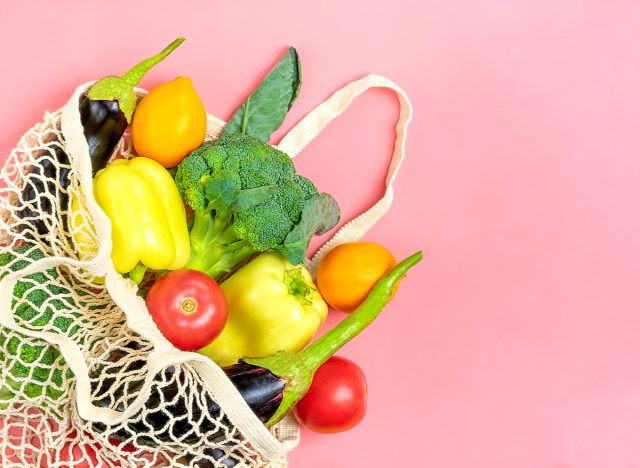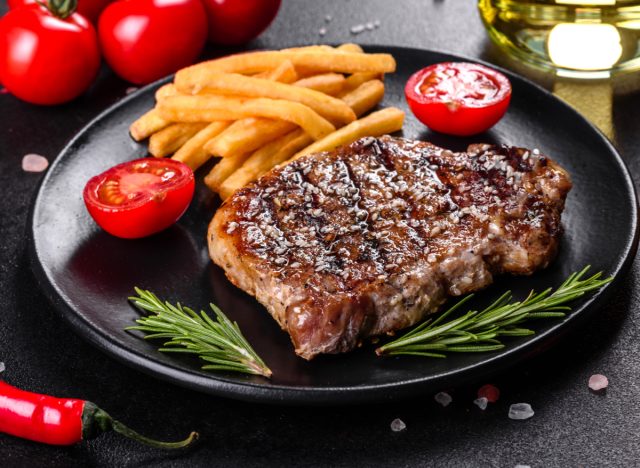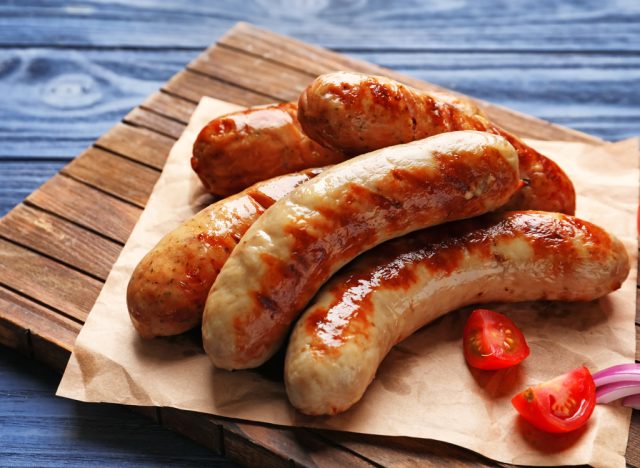Eating Habits You Must Follow If High Blood Pressure Runs In Your Family — Eat
If you know high blood pressure runs in your family, consider yourself lucky. You now have a clear warning sign to prompt you to take steps to prevent developing hypertension yourself, like changing your eating habits.
See, high blood pressure is often called “the silent killer.” Most people with hypertension have no recognizable symptoms, even when a blood pressure checkup reveals your BP is dangerously high, according to the Mayo Clinic. So, by knowing that a parent, uncle, aunt, or some other member of your family has hypertension, you know you may have a genetic predisposition to developing high blood pressure, too.
But don’t blame genes alone. Families tend to share the same eating, exercise, and other lifestyle habits, such as smoking and drinking alcohol. That means examining your own eating habits and the lifestyle practices of your family members can tip you off to changes you may need to make if you want to avoid the same fate. And there’s good cause for taking the time to investigate because high blood pressure tends to lead to serious chronic diseases like heart disease, kidney failure, and stroke.
How to change your health trajectory through your diet.
You can’t stop aging or change your genetics, but you can adjust your lifestyle habits, like what you eat every day, to reduce your risk of high blood pressure.
A study in Circulation, the journal of the American Heart Association, determined that lifestyle modification is a powerful tool for avoiding hypertension even in people in high genetic risk groups.
Researchers analyzed 314 studies involving more than 2 million people without previous cardiovascular disease and scored participants according to such lifestyle factors as body mass index, diet, sedentary behavior, alcohol consumption, and smoking.
Comparing people with a healthy lifestyle to those with poor eating habits and other negative behavior factors, the researchers determined that those with healthy habits had a 31% lower risk of high blood pressure and cardiovascular disease even when they had a family history of hypertension.
The takeaway is that you can play a significant role in changing your health trajectory even if high blood pressure and heart disease are present in your family. And you can start by making improvements to something you have ultimate control over—your diet.
Begin reducing your high blood pressure risks by adopting these key eating habits, and for more on how to eat healthy, don’t miss The #1 Best Juice to Drink Every Day, Says Science.

By doing so regularly, you will automatically reduce the amount of salt in your diet. And sodium has a big impact on your blood pressure.
When you eat too much salt, it’s harder for your kidneys to remove water from your body. The fluid builds up and increases your blood pressure. The 2020-2025 Dietary Guidelines for Americans recommend eating approximately 2,300 milligrams (mg) of sodium per day, which is enough if you are only using salt to season your meals. “Most Americans consume much more than 2,300 mg, mostly from fast foods, processed foods, canned goods, and frozen foods,” says registered dietitian nutritionist Su-Nui Escobar, RDN, with Evolving Dietitians.
She says that making a habit of the following four steps can significantly improve your heart health:
- Taste your food before using the salt shaker; you’ll likely find the food is tasty without the extra salt.
- Limit the number of fast-food meals you eat.
- Significantly reduce your intake of prepared foods, such as processed foods and frozen dinners, which are loaded with sodium.
- Choose fresh over frozen and canned foods. Even canned vegetables contain lots of sodium as a preservative. Rinse with water before eating.

This advice pertains to everyone but especially to people with a family history of high blood pressure.
“Limit meat consumption at meals to a 3-ounce portion—about the size of the palm of your hand—treat highly marbled red meats and fried foods as a rare treat, trim the fat from all cuts of meat, choose low-fat dairy, and significantly increase the amount of fruits, vegetables, and fiber you consume daily,” says registered dietitian nutritionist Rebecca Schilling, RDN, LDN, a contributor to USA RX.
“Foods high in saturated fat create the perfect storm of trouble for heart health, clogging arteries, raising bad (LDL) cholesterol, and contributing to high blood pressure,” adds Schilling.
If you can’t give up your red meat, at least choose leaner cuts like sirloin, round, or extra-lean ground beef.
RELATED: Eating Habits to Avoid For Lower Cholesterol After 50, Say Dietitians

Not only are processed meats like sausage, bacon, and deli meats high in saturated fats, they are loaded with sodium and other preservatives that are…
Read More: Eating Habits You Must Follow If High Blood Pressure Runs In Your Family — Eat


